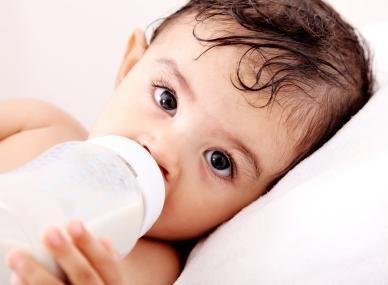Hypoallergenic Baby Formula Does Not Reduce Risk of Allergies

Feeding infants with a hypoallergenic baby formula does not reduce the child's risk of developing allergies later in life, a new study has found.
Researchers at the Murdoch Childrens Research Institute found there was no difference between special whey formula compared to traditional cow's milk.
The trial, involving 620 infants one the largest to test the effect of hypoallergenic baby formula, assessed whether using the formula decreased the risk of allergy later in life.
Infants in the study were given either hypoallergenic, cow's milk or soy formula post breastfeeding. Allergy testing was undertaken at six, 12 and 24 months and children were followed up again at six to seven years of age.
The new findings challenge the public health guidelines set by the Australasian Society of Clinical Immunology that hypoallergenic formula can prevent allergies.
Lead authors of the study said their findings did not support the recommendations that hypoallergenic formula should be used after breast feeding as a preventive strategy for infants at high risk of allergenic disease.
"In our study of high risk children, this 'hypoallergenic' formula did not show any beneficial effect, when compared with a normal cows' milk based formula, for the prevention childhood eczema, asthma or hay fever up to seven years of age," said Adrian Lowe, a research fellow at the Murdoch Childrens Research Institute and the Center for MEGA Epidemiology, the University of Melbourne.
"Our findings do not support the role of hypoallergenic formula for the prevention of allergic disease," said David Hill, a Senior Consultant Allergist at the Murdoch Childrens Research Institute.
"Families at high risk of allergy should continue to be encouraged to breast feed for the many known benefits associated with breastfeeding."
The study was published in the Journal of Allergy and Clinical Immunology.



























